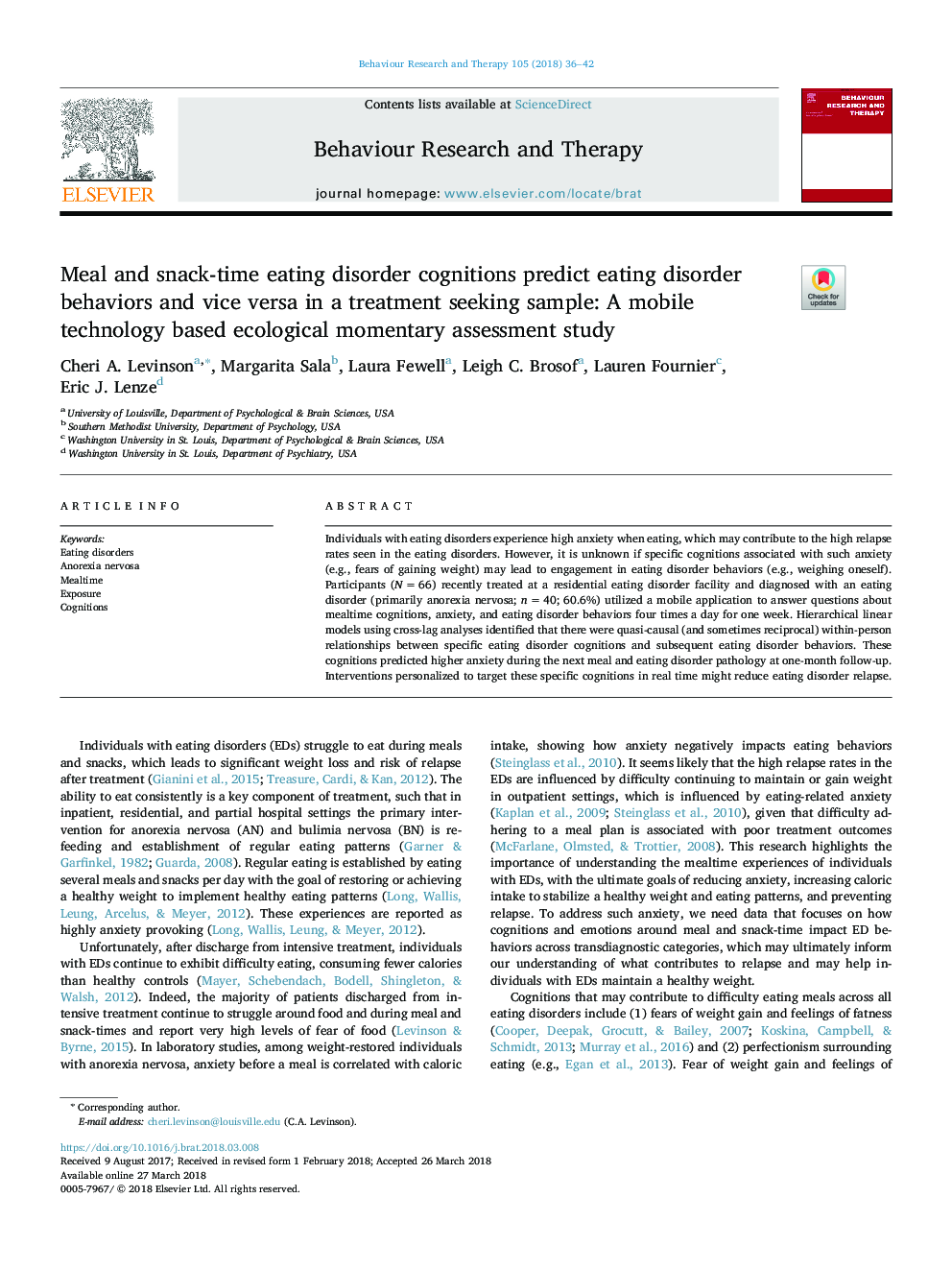| Article ID | Journal | Published Year | Pages | File Type |
|---|---|---|---|---|
| 7261811 | Behaviour Research and Therapy | 2018 | 7 Pages |
Abstract
Individuals with eating disorders experience high anxiety when eating, which may contribute to the high relapse rates seen in the eating disorders. However, it is unknown if specific cognitions associated with such anxiety (e.g., fears of gaining weight) may lead to engagement in eating disorder behaviors (e.g., weighing oneself). Participants (Nâ¯=â¯66) recently treated at a residential eating disorder facility and diagnosed with an eating disorder (primarily anorexia nervosa; nâ¯=â¯40; 60.6%) utilized a mobile application to answer questions about mealtime cognitions, anxiety, and eating disorder behaviors four times a day for one week. Hierarchical linear models using cross-lag analyses identified that there were quasi-causal (and sometimes reciprocal) within-person relationships between specific eating disorder cognitions and subsequent eating disorder behaviors. These cognitions predicted higher anxiety during the next meal and eating disorder pathology at one-month follow-up. Interventions personalized to target these specific cognitions in real time might reduce eating disorder relapse.
Related Topics
Health Sciences
Medicine and Dentistry
Psychiatry and Mental Health
Authors
Cheri A. Levinson, Margarita Sala, Laura Fewell, Leigh C. Brosof, Lauren Fournier, Eric J. Lenze,
